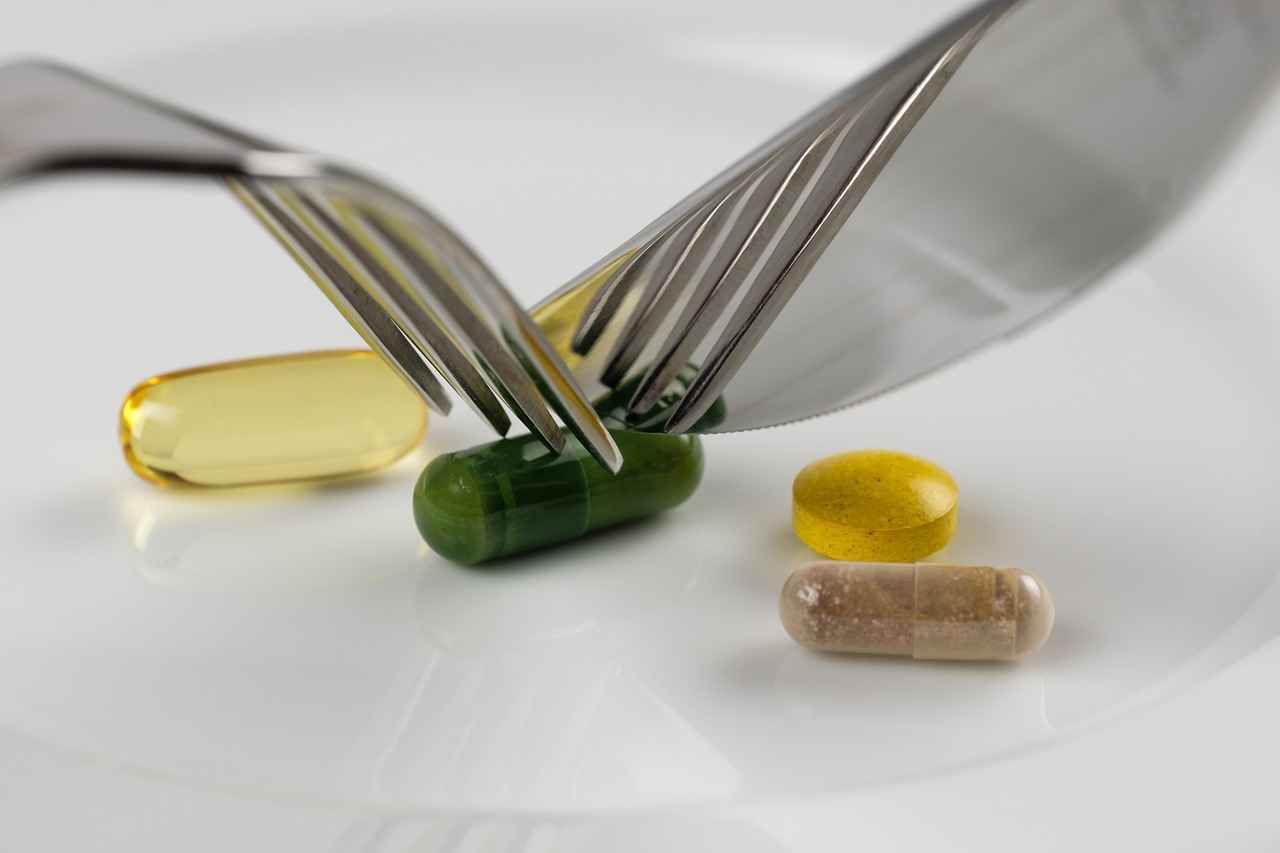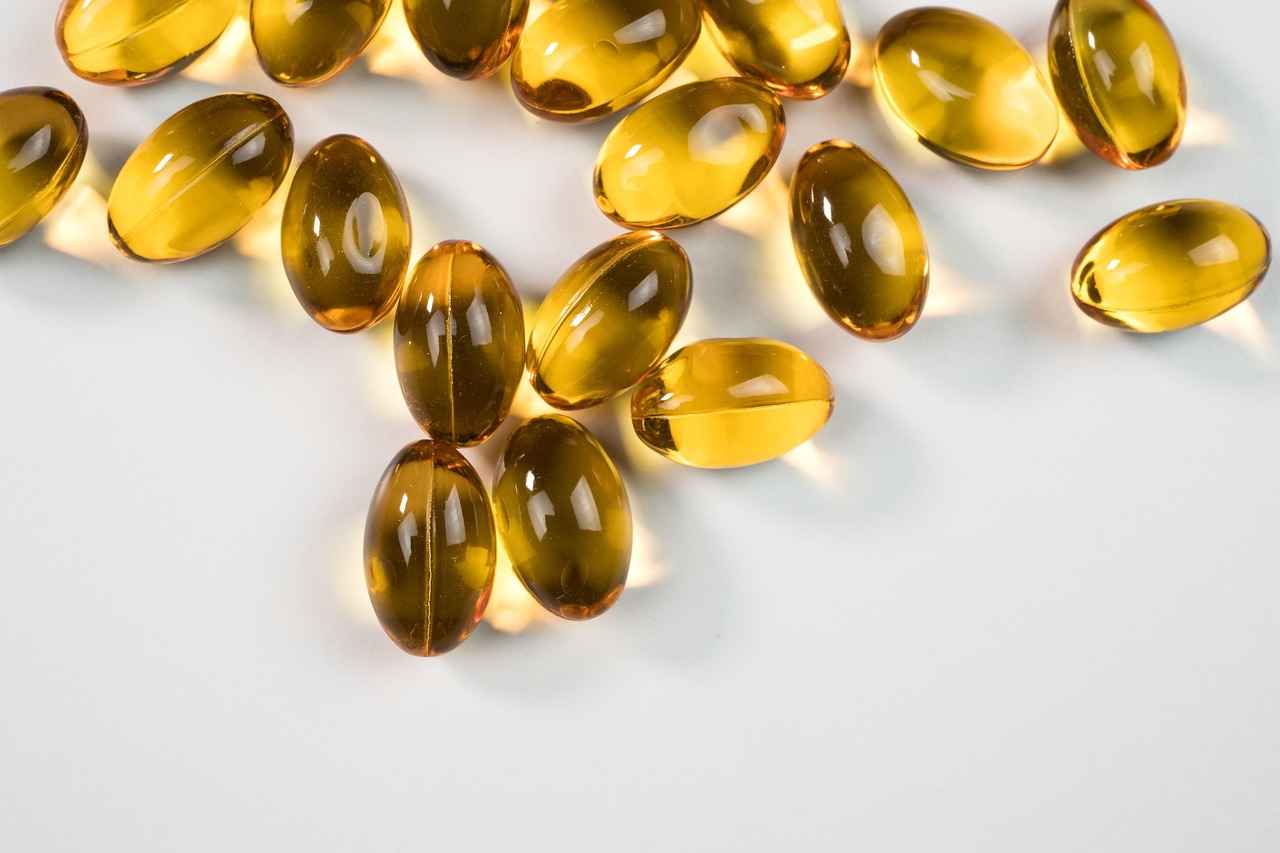This article delves into the remarkable benefits of N-Acetyl Cysteine (NAC) for liver health, elaborating on its mechanisms, effects, and practical applications in enhancing liver function and detoxification.
What is N-Acetyl Cysteine (NAC)?
N-Acetyl Cysteine (NAC) is a potent antioxidant and a derivative of the amino acid cysteine. It plays a crucial role in supporting cellular health and fighting oxidative stress, particularly in the liver.
How Does NAC Benefit Liver Function?
NAC promotes liver health by replenishing levels of glutathione, an essential antioxidant that protects liver cells from damage and supports detoxification processes vital for optimal liver function.
The Role of Glutathione in Liver Health
Glutathione is a key antioxidant in the liver, neutralizing harmful free radicals and detoxifying toxic substances. It is integral in maintaining cellular health and proper liver function.
Detoxification Processes Supported by NAC
NAC assists in the detoxification of drugs and toxins, enhancing the liver’s ability to process and eliminate harmful substances, which reduces the risk of liver damage and disease.
Protection Against Oxidative Stress
By increasing glutathione levels, NAC protects liver cells from oxidative stress, which can lead to inflammation, fibrosis, and other chronic liver conditions.
Clinical Evidence Supporting NAC Use
Numerous studies have shown the effectiveness of NAC in improving liver health, particularly in patients suffering from chronic liver diseases and those experiencing acetaminophen overdose.
NAC and Chronic Liver Diseases
NAC has demonstrated potential in managing various chronic liver diseases, including hepatitis, fatty liver disease, and cirrhosis, by enhancing liver function and minimizing inflammation.
NAC in Alcohol-Related Liver Damage
Research suggests that NAC may reduce the effects of alcohol-induced liver damage by boosting antioxidant defenses and lowering inflammation, thus supporting recovery.
NAC and Non-Alcoholic Fatty Liver Disease (NAFLD)
NAC supplementation has been linked to improved liver function tests and decreased liver fat in patients with NAFLD, underscoring its potential as a therapeutic agent.
How to Use NAC for Liver Health
Incorporating NAC into your routine can significantly benefit liver health. However, understanding the appropriate dosages and available forms is crucial for optimal effectiveness.
Recommended Dosages of NAC
Typical dosages of NAC for liver support range from 600 mg to 1800 mg per day, depending on individual health needs and conditions. Consulting a healthcare provider is essential.
Forms of NAC Available
NAC is available in various forms, including capsules, tablets, and powders, allowing users to choose the most convenient method for supplementation while ensuring effective delivery.
Potential Side Effects and Considerations
While NAC is generally safe, some individuals may experience side effects such as gastrointestinal discomfort or allergic reactions. It is important to consult a healthcare professional.
Who Should Avoid NAC?
Certain populations, including individuals with specific allergies or those on certain medications, should avoid NAC or use it under medical supervision to prevent adverse reactions.
Interactions with Other Medications
NAC may interact with certain medications, such as nitroglycerin and activated charcoal, highlighting the need for careful monitoring and consultation with healthcare providers when combining treatments.
Conclusion: The Importance of NAC for Liver Health
N-Acetyl Cysteine (NAC) is a valuable supplement for supporting liver health, offering protective benefits against oxidative stress and aiding in detoxification, making it a worthwhile addition to health regimens.

What is N-Acetyl Cysteine (NAC)?
N-Acetyl Cysteine (NAC) is a remarkable compound that serves as a powerful antioxidant and is a derivative of the amino acid cysteine. It plays a crucial role in promoting cellular health and is particularly known for its effectiveness in combating oxidative stress within the liver.
This article delves into the significance of NAC in maintaining liver health, highlighting its mechanisms, benefits, and practical applications in enhancing liver function and facilitating detoxification.
NAC contributes to liver health primarily by replenishing levels of glutathione, an essential antioxidant that protects liver cells from damage. Glutathione is vital for detoxification processes, which are critical for the overall functionality of the liver.
Glutathione plays a key role in the liver, where it neutralizes free radicals and detoxifies harmful substances. This process is essential for maintaining cellular health and preventing damage to liver tissues.
NAC aids the liver in processing and eliminating toxins, thus reducing the risk of liver damage and disease. By enhancing glutathione levels, NAC protects liver cells from oxidative stress, which can lead to inflammation and chronic liver conditions.
Numerous studies have highlighted the efficacy of NAC in improving liver health, especially in individuals suffering from chronic liver diseases or those who have experienced an acetaminophen overdose. Its role in managing conditions such as hepatitis and fatty liver disease is well-documented.
In summary, N-Acetyl Cysteine (NAC) is a vital supplement for those looking to support their liver health. Its ability to combat oxidative stress and enhance detoxification processes makes it an important addition to health regimens aimed at maintaining optimal liver function.

How Does NAC Benefit Liver Function?
How N-Acetyl Cysteine (NAC) Benefits Liver Function
N-Acetyl Cysteine (NAC) is gaining recognition for its profound impact on liver health. By enhancing the body’s levels of glutathione, a critical antioxidant, NAC plays a vital role in protecting liver cells from damage caused by toxins and oxidative stress. This article delves into the specific benefits of NAC for liver function, highlighting its mechanisms and effects.
Replenishing Glutathione Levels
Glutathione is often referred to as the body’s master antioxidant. It is essential for neutralizing free radicals and detoxifying harmful substances in the liver. NAC acts as a precursor to glutathione, effectively increasing its levels in the liver. This replenishment is crucial, especially in conditions where the liver is under stress from toxins, alcohol, or chronic diseases.
Supporting Detoxification Processes
The liver is the body’s primary detoxification organ, and NAC enhances its ability to process and eliminate toxins. By increasing glutathione levels, NAC helps the liver to break down drugs, alcohol, and environmental toxins more efficiently. This detoxification support is vital for maintaining overall liver health and reducing the risk of liver-related diseases.
Protection Against Oxidative Stress
Oxidative stress can lead to inflammation, fibrosis, and other chronic liver conditions. NAC’s ability to boost glutathione levels provides a protective barrier against these damaging processes. Studies have shown that individuals with liver diseases may experience reduced oxidative stress and inflammation when supplemented with NAC, leading to improved liver function.
Clinical Evidence of NAC’s Efficacy
Research supports the use of NAC in various clinical settings, particularly for patients with chronic liver diseases, such as hepatitis and cirrhosis. Additionally, NAC has been shown to be effective in preventing liver damage from acetaminophen overdose, further underscoring its protective capabilities.
Conclusion
In summary, N-Acetyl Cysteine (NAC) offers significant benefits for liver function through its role in replenishing glutathione levels, supporting detoxification processes, and protecting against oxidative stress. Its clinical applications make it a valuable supplement for those looking to enhance liver health and overall well-being.
The Role of Glutathione in Liver Health
Glutathione is a critical antioxidant found in the liver, playing an essential role in maintaining overall health and functionality. This powerful molecule is composed of three amino acids: cysteine, glutamine, and glycine. Its primary function is to combat oxidative stress by neutralizing harmful free radicals that can cause cellular damage. By doing so, glutathione helps to protect the liver from various diseases and enhances its detoxification processes.
One of the most significant functions of glutathione is its ability to detoxify harmful substances. The liver is responsible for filtering toxins and waste products from the bloodstream, and glutathione supports this process by binding to these toxins, making them more water-soluble and easier for the body to excrete. This detoxification is vital for preventing liver damage and maintaining optimal liver health.
Moreover, glutathione plays a crucial role in maintaining cellular health and function. It regulates various cellular processes, including the synthesis of proteins and the activation of enzymes that are essential for metabolic functions. A healthy level of glutathione is vital for liver cells to function properly, promoting regeneration and repair after injury or stress.
Research has shown that low levels of glutathione are associated with several liver conditions, including fatty liver disease, hepatitis, and cirrhosis. Therefore, replenishing glutathione levels through dietary sources or supplements can be beneficial for individuals at risk of liver disease.
In conclusion, glutathione is an indispensable component of liver health. Its role in detoxification, protection against oxidative stress, and maintenance of cellular function makes it a vital antioxidant for ensuring the liver operates efficiently. For those looking to support their liver health, understanding and enhancing glutathione levels can be a crucial step.
Detoxification Processes Supported by NAC
N-Acetyl Cysteine (NAC) plays a crucial role in the detoxification processes of the liver, which is essential for maintaining overall health. By enhancing the liver’s ability to process and eliminate harmful substances, NAC significantly contributes to reducing the risk of liver damage and disease.
One of the primary mechanisms through which NAC supports detoxification is by replenishing glutathione, a powerful antioxidant found in the liver. Glutathione is vital for neutralizing free radicals and detoxifying various substances, including drugs and environmental toxins. When glutathione levels are adequate, the liver can efficiently break down and eliminate these harmful agents, preventing accumulation that could lead to cellular damage.
Moreover, NAC assists in the detoxification of acetaminophen (paracetamol), a common pain reliever that can be toxic in high doses. In cases of overdose, NAC acts as an antidote by restoring glutathione levels, thereby facilitating the safe removal of acetaminophen from the body. This protective effect underscores the importance of NAC in emergency medical settings.
In addition to its role in drug detoxification, NAC also aids in the removal of heavy metals and other environmental toxins. By enhancing the liver’s detoxification pathways, NAC ensures that these harmful substances do not accumulate to levels that could cause chronic health issues.
Furthermore, studies have shown that NAC can help reduce inflammation in the liver, which is often a consequence of toxin exposure. This anti-inflammatory effect not only promotes liver health but also supports the overall detoxification process.
In conclusion, N-Acetyl Cysteine is an essential supplement for anyone looking to support their liver’s detoxification capabilities. By enhancing glutathione levels and promoting the elimination of harmful substances, NAC plays a significant role in maintaining liver health and preventing disease.
Protection Against Oxidative Stress
N-Acetyl Cysteine (NAC) is increasingly recognized for its role in protecting liver cells from oxidative stress, a condition characterized by an imbalance between free radicals and antioxidants in the body. This imbalance can lead to significant cellular damage and is a contributing factor in various liver diseases.
One of the primary mechanisms through which NAC exerts its protective effects is by boosting glutathione levels in the liver. Glutathione is a potent antioxidant that plays a crucial role in neutralizing harmful free radicals. When glutathione levels are adequate, liver cells are better equipped to combat oxidative damage, thereby reducing the risk of inflammation and fibrosis, which are precursors to chronic liver conditions.
The importance of glutathione cannot be overstated. It not only protects liver cells but also supports detoxification processes that are essential for maintaining overall liver function. By enhancing the liver’s ability to detoxify harmful substances, NAC helps mitigate the risks associated with prolonged exposure to toxins, including those from alcohol and environmental pollutants.
Furthermore, studies have shown that NAC supplementation can lead to a significant decrease in markers of oxidative stress in individuals with liver conditions. This is particularly relevant for patients suffering from chronic liver diseases, where oxidative stress is often a driving factor in disease progression.
In summary, by increasing glutathione levels, NAC serves as a vital ally in the fight against oxidative stress. Its ability to protect liver cells from damage not only promotes liver health but also plays a crucial role in preventing the onset of serious chronic liver conditions.
Clinical Evidence Supporting NAC Use
N-Acetyl Cysteine (NAC) has garnered significant attention in the medical community for its potential benefits in enhancing liver health. Numerous clinical studies have illustrated its effectiveness, particularly in individuals suffering from chronic liver diseases and those who have experienced acetaminophen overdose.
Research indicates that NAC acts as a potent antioxidant, helping to replenish glutathione levels in the liver. Glutathione is essential for detoxification and protecting liver cells from oxidative damage. A study published in the Journal of Hepatology highlighted that patients with chronic liver conditions showed marked improvements in liver function tests after receiving NAC treatment, underscoring its therapeutic potential.
In cases of acetaminophen overdose, NAC is considered the standard treatment. It works by mitigating the toxic effects of acetaminophen on the liver, effectively preventing acute liver failure. The American Journal of Medicine reported that timely administration of NAC can significantly reduce mortality rates in patients with severe liver damage due to overdose.
- Chronic Liver Diseases: NAC has been shown to reduce inflammation and fibrosis in patients with hepatitis and cirrhosis.
- Alcohol-Related Liver Damage: Studies suggest that NAC may help in reducing alcohol-induced oxidative stress, promoting recovery in affected individuals.
- Non-Alcoholic Fatty Liver Disease (NAFLD): Evidence indicates that NAC supplementation can lead to improved liver function and reduced liver fat in patients diagnosed with NAFLD.
In conclusion, the clinical evidence supporting the use of N-Acetyl Cysteine in improving liver health is robust and compelling. Its role in enhancing glutathione levels, coupled with its protective effects against liver toxicity, makes it a vital component in the management of various liver-related conditions. As always, it is advisable for individuals to consult healthcare professionals before starting any new supplementation regimen.

NAC and Chronic Liver Diseases
N-Acetyl Cysteine (NAC) has emerged as a significant player in the management of chronic liver diseases. This article delves into the various ways NAC can support liver health, particularly in conditions such as hepatitis, fatty liver disease, and cirrhosis. By enhancing liver function and reducing inflammation, NAC offers a multifaceted approach to liver care.
Chronic liver diseases often stem from factors like viral infections, alcohol abuse, and metabolic disorders. These conditions can lead to severe complications if not managed properly. NAC acts primarily through its ability to replenish glutathione, a potent antioxidant that plays a crucial role in liver detoxification and cellular protection.
One of the most promising aspects of NAC is its ability to reduce inflammation in liver tissues. Inflammation is a common feature of chronic liver diseases, which can exacerbate damage and lead to conditions like cirrhosis. By mitigating inflammatory responses, NAC not only protects liver cells but also promotes healing and recovery.
Moreover, studies have shown that NAC can significantly improve liver function tests in patients suffering from non-alcoholic fatty liver disease (NAFLD). This condition, characterized by the accumulation of fat in liver cells, can progress to more severe liver damage if left untreated. NAC supplementation has been associated with reduced liver fat and improved metabolic profiles, making it a valuable therapeutic option.
In the context of hepatitis, NAC has demonstrated potential benefits by enhancing the liver’s ability to combat viral infections and reduce oxidative stress. Its protective effects can be particularly beneficial for patients undergoing treatments that may further stress liver function.
In conclusion, NAC represents a promising adjunct therapy for managing chronic liver diseases. Its ability to enhance liver function, reduce inflammation, and protect against oxidative stress makes it an essential consideration for those looking to support their liver health.
NAC in Alcohol-Related Liver Damage
N-Acetyl Cysteine (NAC) has garnered attention in the realm of liver health, particularly concerning alcohol-related liver damage. This article delves into the mechanisms by which NAC may offer protective benefits to the liver, especially for individuals who consume alcohol.
Research indicates that NAC plays a significant role in mitigating the effects of alcohol-induced liver damage. One of its principal mechanisms is through the promotion of antioxidant defenses. Alcohol consumption can lead to increased oxidative stress in the liver, resulting in cellular damage. NAC, as a precursor to glutathione, helps replenish this vital antioxidant, thereby enhancing the liver’s ability to combat oxidative stress.
In addition to its antioxidant properties, NAC is known for its ability to reduce inflammation. Chronic alcohol consumption often leads to inflammatory responses in liver tissues, contributing to conditions such as fatty liver disease and alcoholic hepatitis. By modulating inflammatory pathways, NAC may support recovery and promote healthier liver function.
| Mechanism | Effect on Liver |
|---|---|
| Antioxidant Defense | Neutralizes free radicals, reducing oxidative stress. |
| Inflammation Reduction | Decreases inflammatory markers, supporting liver recovery. |
Moreover, clinical studies have shown that individuals with alcohol-related liver conditions who supplemented with NAC exhibited improved liver function tests and a reduction in liver fat accumulation. These findings suggest that NAC could be a valuable adjunct therapy for those struggling with the repercussions of alcohol consumption.
In conclusion, NAC’s potential to support liver health in the context of alcohol-related damage is promising. By enhancing antioxidant defenses and reducing inflammation, NAC not only aids in recovery but also contributes to overall liver function. As always, it is advisable for individuals to consult healthcare professionals before starting any new supplement regimen.
NAC and Non-Alcoholic Fatty Liver Disease (NAFLD)
N-Acetyl Cysteine (NAC) has emerged as a promising supplement in the management of Non-Alcoholic Fatty Liver Disease (NAFLD). This condition, characterized by the accumulation of fat in the liver without alcohol consumption, affects millions worldwide and can lead to serious liver damage if left untreated. Recent studies indicate that NAC supplementation may play a vital role in enhancing liver function and reducing liver fat.
The mechanism by which NAC exerts its beneficial effects on liver health is primarily through its ability to boost glutathione levels. Glutathione is a key antioxidant that protects liver cells from oxidative stress and damage caused by free radicals. By replenishing glutathione, NAC helps to mitigate the harmful effects of fat accumulation in the liver, thereby improving overall liver function.
Clinical evidence supports the use of NAC in patients with NAFLD. Research has shown that individuals taking NAC experienced significant improvements in liver function tests, which are critical indicators of liver health. Additionally, a reduction in liver fat has been documented, suggesting that NAC can help reverse the fatty liver condition.
- Improvement in Liver Function Tests: Studies reveal that NAC supplementation leads to better results in liver enzymes, indicating enhanced liver performance.
- Reduction in Liver Fat: NAC has been associated with decreased fat deposits in the liver, which is crucial for managing NAFLD.
Moreover, NAC’s anti-inflammatory properties contribute to its effectiveness against NAFLD. Chronic inflammation is a significant factor in the progression of liver diseases, and by reducing inflammation, NAC may help prevent further liver damage.
In conclusion, the potential of N-Acetyl Cysteine as a therapeutic agent for Non-Alcoholic Fatty Liver Disease is becoming increasingly recognized. With its ability to improve liver function tests and reduce liver fat, NAC supplementation may serve as a valuable adjunct in the management of this prevalent condition. As always, individuals should consult healthcare professionals before starting any new supplement regimen to ensure safety and appropriateness based on personal health needs.

How to Use NAC for Liver Health
N-Acetyl Cysteine (NAC) has gained recognition for its potential benefits in supporting liver health. However, to maximize its effectiveness, it is crucial to understand how to properly incorporate this supplement into your daily routine. This article will guide you through the recommended dosages, various forms of NAC, and essential considerations to keep in mind.
Understanding Recommended Dosages of NAC
The appropriate dosage of NAC can vary significantly based on individual health needs and conditions. Typical dosages for liver support range from 600 mg to 1800 mg per day. It is essential to start with a lower dose and gradually increase it, monitoring how your body responds. Consulting with a healthcare provider is highly recommended to tailor the dosage to your specific situation.
Forms of NAC Available for Supplementation
- Capsules: Convenient and easy to take, capsules are a popular choice for many users.
- Tablets: Similar to capsules, tablets offer a solid form of NAC that can be taken with water.
- Powders: For those who prefer flexibility, NAC powder can be mixed into drinks or smoothies, allowing for customizable dosages.
Potential Side Effects and Precautions
While NAC is generally considered safe, some individuals may experience gastrointestinal discomfort or allergic reactions. It is crucial to be aware of your body’s responses and consult a healthcare professional if you notice any adverse effects. Additionally, certain populations, such as those with specific allergies or on certain medications, should approach NAC with caution.
Conclusion: Making NAC a Part of Your Health Routine
Incorporating NAC into your health regimen can be a beneficial step towards enhancing liver function and overall well-being. By understanding the appropriate dosages, available forms, and potential side effects, you can effectively utilize this powerful antioxidant to support your liver health.
Recommended Dosages of NAC
Recommended Dosages of N-Acetyl Cysteine (NAC)
N-Acetyl Cysteine (NAC) is widely recognized for its numerous health benefits, particularly in supporting liver function. When considering NAC supplementation, it is essential to understand the appropriate dosages tailored to individual health needs.
Typical dosages of NAC for liver support can range from 600 mg to 1800 mg per day. This variation depends on several factors, including:
- Individual Health Conditions: Different health issues may require adjusted dosages. For instance, those with chronic liver diseases might need higher doses.
- Age and Weight: Age and body weight can influence how NAC is metabolized, thus affecting the recommended dosage.
- Medical Supervision: It is crucial to consult with a healthcare provider before starting NAC to determine the most effective dosage based on personal health assessments.
Moreover, NAC is available in various forms, including capsules, tablets, and powders. This variety allows users to select the most convenient method for supplementation, ensuring effective delivery and adherence to the recommended dosages.
It is important to note that while NAC is generally safe, exceeding the recommended dosages can lead to potential side effects, including gastrointestinal discomfort or allergic reactions. Therefore, monitoring and adherence to prescribed amounts is vital.
In conclusion, if you are considering NAC for liver health, remember that starting with a dosage of 600 mg to 1800 mg per day is typical, but consultation with a healthcare provider is essential to tailor the dosage to your unique health profile.
Forms of NAC Available
N-Acetyl Cysteine (NAC) is a versatile supplement that comes in multiple forms, catering to the diverse preferences and needs of users. Understanding the different forms of NAC available can help individuals make informed choices about their supplementation to support liver health.
NAC is available in three primary forms: capsules, tablets, and powders. Each form has its own set of advantages, allowing users to select the method that best fits their lifestyle and preferences.
| Form | Description | Advantages |
|---|---|---|
| Capsules | Small, easy-to-swallow pills containing NAC. |
|
| Tablets | Compressed forms of NAC, often larger than capsules. |
|
| Powders | Loose NAC powder that can be mixed with liquids or food. |
|
Choosing the right form of NAC can significantly impact its effectiveness and convenience. Users should consider factors such as personal preferences, dosage requirements, and lifestyle when selecting their NAC supplement.
In conclusion, NAC is available in various forms, including capsules, tablets, and powders, allowing users to choose the most convenient method for supplementation while ensuring effective delivery. Each form offers unique benefits, making it essential for individuals to assess their needs before making a decision.

Potential Side Effects and Considerations
N-Acetyl Cysteine (NAC) is widely recognized for its numerous health benefits, particularly in supporting liver health. However, it is essential to be aware of potential side effects and considerations before incorporating it into your regimen.
- Gastrointestinal Discomfort: Some individuals may experience gastrointestinal issues such as nausea, vomiting, or diarrhea when taking NAC. These symptoms are generally mild but can be uncomfortable.
- Allergic Reactions: Although rare, allergic reactions to NAC can occur. Symptoms may include rash, itching, or swelling, particularly in sensitive individuals. If any severe reactions are experienced, it is crucial to seek medical attention immediately.
- Interactions with Medications: NAC may interact with certain medications, such as nitroglycerin, potentially enhancing its effects and leading to adverse reactions. Always consult a healthcare provider before starting NAC, especially if you are on other medications.
- Specific Populations: Pregnant or breastfeeding women, as well as individuals with specific allergies or pre-existing health conditions, should exercise caution. Consulting a healthcare professional is recommended to ensure safety.
While NAC is generally considered safe for most individuals, it is essential to approach supplementation with caution. Consulting with a healthcare professional can help tailor the dosage and usage to individual health needs, ensuring optimal benefits while minimizing risks.
In summary, understanding the potential side effects and considerations associated with NAC is crucial for safe and effective use. By being informed and proactive, individuals can enjoy the health benefits of NAC while safeguarding their well-being.
Who Should Avoid NAC?
N-Acetyl Cysteine (NAC) is a widely used supplement known for its numerous health benefits, particularly in supporting liver function. However, it is crucial to recognize that not everyone should use NAC indiscriminately. Certain populations must exercise caution or avoid this supplement altogether.
Allergic Reactions are a primary concern for individuals considering NAC. Those with a known allergy to cysteine or any of the ingredients in NAC supplements should refrain from using them. Allergic reactions can range from mild symptoms, such as skin rashes, to severe reactions like anaphylaxis, which can be life-threatening.
Additionally, individuals taking specific medications should consult their healthcare providers before starting NAC. For instance, NAC can interact with medications like nitroglycerin, which is used to treat heart conditions. The combination can lead to an increased risk of side effects such as low blood pressure, dizziness, or fainting.
Moreover, individuals with pre-existing health conditions, such as asthma, should approach NAC supplementation cautiously. NAC can sometimes cause bronchospasm, which can exacerbate asthma symptoms. Therefore, it is advisable for asthmatic patients to seek medical advice before incorporating NAC into their regimen.
Pregnant or breastfeeding women should also avoid NAC unless prescribed by a healthcare professional, as the effects on fetal development or nursing infants are not fully understood.
In summary, while NAC offers significant health benefits, it is essential for certain populations, including those with allergies, specific medication regimens, and pre-existing health conditions, to either avoid NAC or use it under strict medical supervision. Consulting a healthcare provider ensures safety and helps mitigate potential risks associated with its use.
Interactions with Other Medications
N-Acetyl Cysteine (NAC) is widely recognized for its numerous health benefits, particularly in supporting liver health. However, it is crucial to understand that NAC can interact with certain medications, which may influence their effectiveness or lead to adverse reactions. This section aims to provide insights into these interactions, emphasizing the importance of consulting healthcare providers before starting NAC supplementation.
Common Medications That May Interact with NAC
- Nitroglycerin: NAC can enhance the vasodilatory effects of nitroglycerin, potentially leading to a significant drop in blood pressure. This interaction necessitates careful monitoring of blood pressure levels when these medications are used together.
- Activated Charcoal: When taken concurrently, activated charcoal may reduce the absorption of NAC, diminishing its effectiveness. It is advisable to space out the administration of these substances to ensure optimal absorption of NAC.
Importance of Consultation with Healthcare Providers
Given the potential for interactions, it is essential for individuals considering NAC supplementation to discuss their current medications with a healthcare provider. This is particularly important for those who are on medications for chronic conditions, as NAC may alter the pharmacokinetics of these drugs.
Monitoring and Adjustments
Healthcare providers may recommend regular monitoring of liver function and overall health when NAC is introduced into a treatment regimen, especially in patients with pre-existing conditions or those taking multiple medications. Adjustments to dosages or alternative therapies may be necessary to avoid complications.
Final Thoughts
Understanding the interactions between NAC and other medications is vital for safe and effective use. By maintaining open communication with healthcare professionals, individuals can harness the benefits of NAC while minimizing risks associated with drug interactions.

Conclusion: The Importance of NAC for Liver Health
N-Acetyl Cysteine (NAC) has garnered significant attention in the health community for its potential to support liver health. This powerful antioxidant, derived from the amino acid cysteine, plays a crucial role in maintaining optimal liver function and protecting against various liver ailments.
The liver is essential for detoxification and metabolic processes, and NAC enhances its function by replenishing glutathione, a key antioxidant that helps neutralize harmful free radicals. By increasing glutathione levels, NAC actively protects liver cells from oxidative stress, which can lead to inflammation and chronic liver diseases.
| Benefit | Description |
|---|---|
| Replenishes Glutathione | Boosts antioxidant levels, protecting liver cells from damage. |
| Aids Detoxification | Facilitates the liver’s ability to process and eliminate toxins. |
| Reduces Inflammation | Helps mitigate inflammation associated with liver diseases. |
Clinical studies have shown that NAC is particularly effective in managing conditions such as hepatitis, fatty liver disease, and even alcohol-related liver damage. Its ability to enhance liver function and reduce inflammation makes it a valuable addition to treatment regimens for those suffering from chronic liver conditions.
Moreover, incorporating NAC into your daily routine can be straightforward, with dosages typically ranging from 600 mg to 1800 mg daily. However, it is essential to consult a healthcare provider to determine the appropriate dosage based on individual health needs.
While NAC is generally safe, some individuals may experience mild side effects such as gastrointestinal discomfort. It is crucial for individuals with specific allergies or those on certain medications to seek medical advice before starting NAC supplementation.
In conclusion, N-Acetyl Cysteine (NAC) is a potent supplement that supports liver health through its antioxidant properties and detoxification capabilities. Its role in enhancing liver function and protecting against oxidative stress makes it a worthwhile consideration for anyone looking to improve their liver health.







